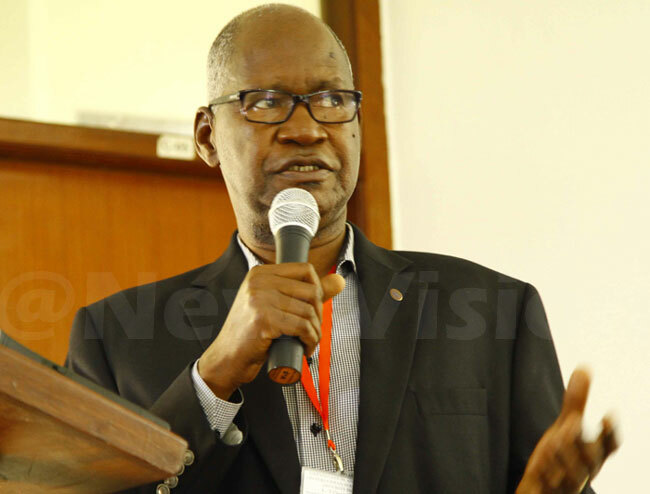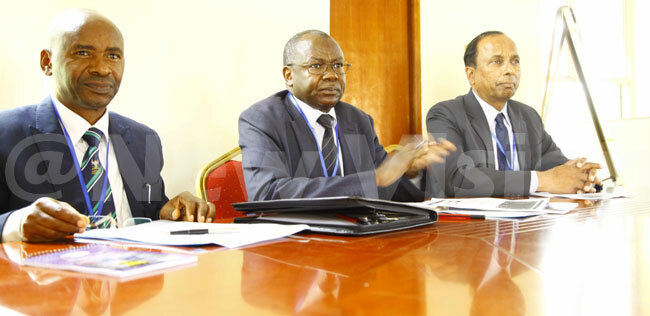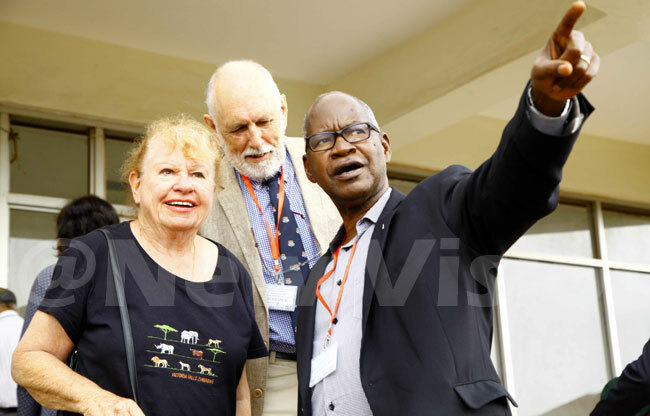Peri-urban challenges require scientific solutions - researchers
The researchers hope to address challenges caused by rapid population growth.
Ugandan and Australian Researchers have called for supported research on urbanisation challenges in order to come up with scientific solutions.
Currently, they are researching on urban and peri urban issues linked to food security, sanitation, rural immigration and all other challenges related to rapid population growth in Uganda and Africa in general.
On Monday, while speaking during an International conference on urbanisation and its impact on Peri-urban water and food security in Africa, Prof. Elly Sabiiti the lead convener, said Makerere University is collaborating with several universities in Australia to see how best the challenges can be addressed.
The conference under the theme: Developing research collaboration and capacity building, the Urbanisation and its Impact on Peri-urban Water and Food Security in Africa, was intended to share learning experiences from Australia and Africa on peri-urban water management and food production.
Other objectives were to encourage an open dialogue on ways to strengthen institutional capacity and framework for effective management of peri-urban landscapes and identify areas for research collaboration and develop a joint research proposal for a longer term research collaboration.

PIC: Prof Elly Sabiiti addressing the conference. (Credit: Agnes Nantambi)

“We have a lot of slums coming up; we have the issue of limited food for the increasing population of Kampala. People were farming in Kampala and this culture has remained, but we need to look at it in a modern way to make sure that it is not replaced by huge buildings,“ Sabiiti said.
He observed that people who are born in urbanising areas and they are still around have a challenge of infrastructure coming up which is displacing and pushing them away from the city.
“We cannot avoid urbanisation because we need cities, roads and good drainage. But now, when it rains here, the water floods the city. This is caused by agricultural waste and polythene thrown into the drainage system,“ he added.
He said such challenges require scientific solutions.
"Kampala is expanding, but there is a limit of how much it will expand. In the end, you have to deal with a huge population co-existing with farmers, industrialists, and businesses people," Sabiiti said.
The collaboration will contribute knowledge through research and can be used to make good policies for better planning.
Prof. Basant Mahenshwari from Western Sydney University, said: “This collaboration with Makerere will help to share experiences from Australia and Africa and come up with ideas and learn from each other and identify what can be done to further capacity building and research“.
"In western Sidney University, we have designed a natural water line for food production and if this can be done in Africa, it will help keep the environment clean and hold the ecosystem much more sustainably.

PIC: Prof Sabiiti with Australian professors. (Credit: Agnes Nantambi)
"When you don’t manage waste it can pollute the soil, ground water, rivers and lakes which can have very devastating effects but, if we can manage all this, it can be used in peri-urban areas for food production and its sustainability," he added.
The vice-chancellor Makerere University, in a speech read for him by the principal of the college of Agricultural and Environmental sciences, Prof. Bernard Bashasha, stressed that urbanisation is both promising and problematic for Africa.
“Cities are the home of Uganda’s most prestigious educational institutions, which include Makerere University. These universities are producing talented graduates with highly marketable skills, the workshop could not have been convened at a better time than now, when the African continent is grappling with challenges created by the rapid population growth, “he said.
He observed that Uganda struggles to provide housing, transport, education, jobs, healthcare, water, and energy to its urban population. He noted that meeting these needs in 10, 15 or 20 years when the country’s urban population will be even greater, will be an immense challenge.